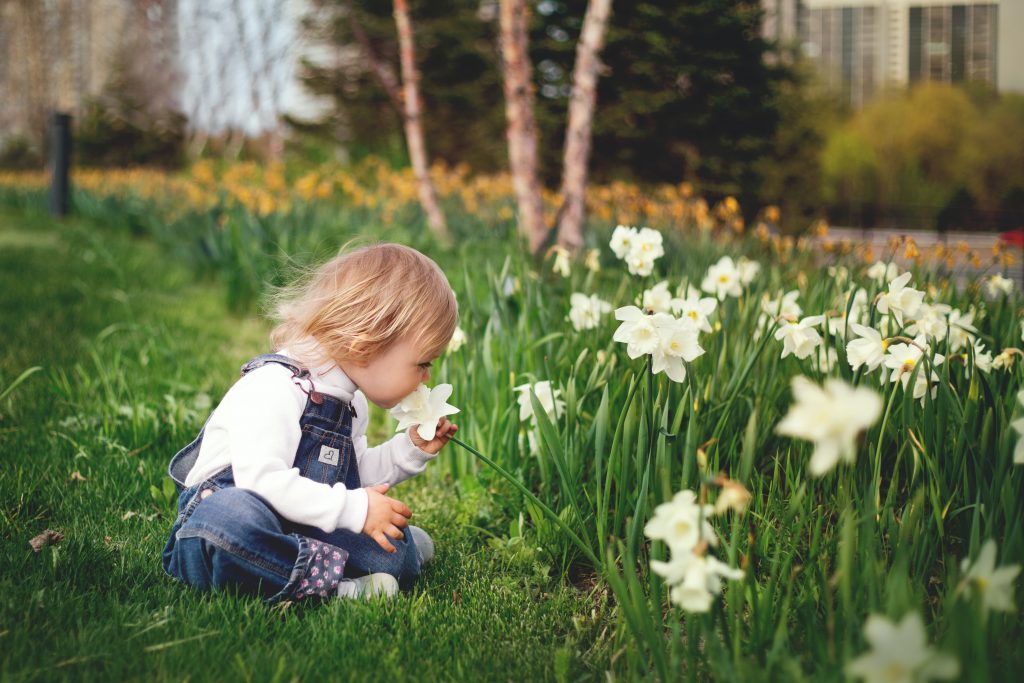In my last blog, we discovered that ordinary humans, like Avengers, have superpowers. I learned that trust is a superpower for happiness, and now let’s delve into another happiness superpower – CURIOSITY. And just like trust, the power of curiosity transcends all facets of life – at home and at work.
About three years ago, I was exploring different guided meditations to listen to during my morning train commute to the city. As detailed in Good Morning, Life!, I was in the midst of a journey to happiness. I came across a meditation that intrigued me called The Meaning of Life. What a bold title, I thought to myself. As if there is one answer! But as I listened that bold title didn’t disappoint. The meditation lesson outlined three main qualities that bring meaning to our lives and they are: loving, learning and being happy.
I already understood the being happy part, heck, I was writing a book about it. And love is part of my happiness formula, as shared in Good Morning, Life!, so I immediately got that. I hadn’t thought about learning in that way before though, as such an integral quality that gives meaning to life.
Learning gives meaning to life
When I stopped and thought about it, it makes a lot of sense. Learning and growth bring such richness to life, and there are infinite things we can learn in our lifetime. How many of us love to travel? I certainly do! One of the reasons we probably love to travel so much is the learning we do. We learn about different people, landscapes, perspectives, ways of life.
Gaining knowledge and facts is one thing, but gaining wisdom is even more powerful. Wisdom is the deeper knowledge we learn from experience and from knowing things in our hearts. Knowledge is what we can gain through our five senses – interesting and helpful but not the same calibre as wisdom. It is wisdom that is the most valuable and gives the most meaning to life as it can help us become better human beings. Albert Einstein is an authority on this topic, being an icon known for his genius and creativity. I’ve found great inspiration from his quotes related to human growth and curiosity, and I will share some here.
Armed with the outlook that learning and wisdom give meaning to life, I can shift my mindset to encourage learning and growth every day. I think about my daily life and how many learning opportunities there are. How many learning opportunities have I let slip through my fingers because I thought I already knew the answer, or I didn’t listen to gain all the perspective that I could?
I have no special talent. I am only passionately curious.
Albert Einstein
Growth Mindset
Stanford Professor Carol Dweck coined the term growth mindset, and it simply means to believe that our abilities can grow with practice. On the other hand, a fixed mindset assumes the brain has a fixed ability, leading to behaviour that limits growth and learning potential. This simple video explains the difference in mindsets and the resulting outcomes and behaviours. A growth mindset allows us to try new things and not let the fear of failure hold us back. Another instrumental behaviour for a growth mindset is listening. While it sounds straightforward and I’m sure we all feel that we are good listeners, there is usually room to improve.
Listening and curiosity go hand-in-hand.
Curiosity for growth, wisdom and problem-solving
Curiosity as a state of mind gives so much potential for growth, wisdom and problem-solving that wouldn’t be available to me if my mindset is fixed. What if I feel that I already have all the answers? First of all, how could I possibly have all the answers? It’s impossible. In fact, there are probably very few circumstances when there is actually a right and wrong answer. Perhaps there is a better answer, but who’s to say, and usually, there are multiple possible solutions. If I approach a problem thinking there is a right or wrong answer, I’m already limiting myself. Cutting off the potential for new solutions and ideas.
Curiosity can also take me to the root of a problem. Rather than find a solution for the specific issue at hand, perhaps I can prevent future problems or come up with a more holistic solution. This can help me at work. For example, as a bank regulator, if I find a control gap at a bank, rather than just making a recommendation for fixing that specific gap, I can step back. I can get curious and ask what caused that gap. Is it just in that department or is it elsewhere too? Why didn’t anyone find that gap before we did? What incentives do bank employees have for finding and raising their own control gaps? With a curious mindset, there aren’t accusations, just questions.
The important thing is not to stop questioning. Curiosity has its own reason for existence.
Albert Einstein
Curiosity can avoid conflicts
If I’m curious in conversations with people, rather than judging and assuming, there are much fewer opportunities for misunderstandings and conflicts. This helps me in relationships, both personal and professional. When I focus on asking, clarifying and listening, I can learn much more than when I default to telling, asserting and lecturing. Having a learning mindset leaves room for exploration, fresh ideas and collaboration. Sharing my perspective is important, however sharing it knowing it is but one vantage point and being open to other views is the key to open dialogue, avoiding conflicts and deepening relationships.
Zen masters have a term for this inquisitive mindset, they call it a beginner’s mind.
I believe in intuitions and inspirations. I sometimes feel that I am right. I do not know that I am.
Albert Einstein
Beginner’s mindset
In yoga classes and meditations sometimes the instructor talks about using your beginner’s mind. It’s basically viewing the world with an open mind and a fresh set of eyes as if we are a child seeing something for the very first time. It allows us to avoid assumptions and preconceived ideas and expectations of what we are about to experience.
Practicing living with a beginner’s mind during the pandemic has been helpful for me. Daily life can start to feel monotonous without having people to see and activities to do, kind of like the movie Groundhog Day where Bill Murray lives the same day over and over again. But when I look at each day with freshness it doesn’t feel monotonous. I can enjoy the different weather, be mindful of each meal, each conversation. Even things like running water can be relished with a beginner’s mind. These are simple, everyday things but with a new perspective, I can appreciate the differences and little joys. I can experience the richness of every day even if on the surface it can seem much like the day before.
He who can no longer pause to wonder and stand rapt in awe, is as good as dead; his eyes are closed.
Albert Einstein
Tap into the superpower of curiosity and expand your perspective, deepen your relationships, and increase your happiness. What better feeling than to know we are growing and becoming a little wiser than we were the day before?
How are you going to be curious today?

Photo by Sam Chapman on Unsplash 
Photo by Tetyana Kovyrina from Pexels

I find that people who have a sense of awe are curious people. They want to learn about what they see and experience. Such an interesting discussion, Barb. Thanks!
I agree! Thanks!! 🙂 <3